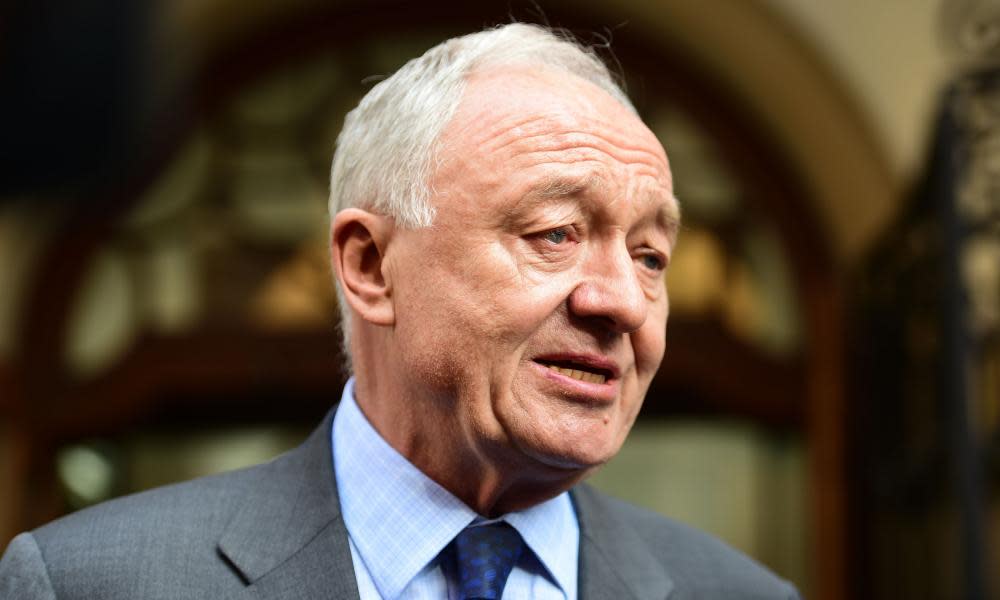Jewish Labour group accuses party of failing to act on antisemitism complaints

The bitter Labour party controversy over antisemitism erupted again last night, as the main organisation representing its Jewish members accused the leadership of failing to deal with a “vast backlog” of complaints and of allowing a second inquiry into Ken Livingstone to get “stuck in limbo”.
The accusations by Jeremy Newmark, the national chair of the Jewish Labour Movement (JLM), came as party sources told the Observer that a group of members, including activists and councillors, was preparing legal action against Labour for failing to act on complaints about antisemitic incidents, some of which date back more than six months.
Newmark said the delays in dealing with many cases raised serious questions about whether the party had really learned lessons following an inquiry into antisemitism last year by Labour peer and former head of Liberty Shami Chakrabarti.
Newmark said: “We remain seriously concerned about what is now a vast backlog of cases involving alleged antisemitism that appear to be stuck in the system, in some cases for over a year. That is not a good indicator of the party having embraced Shami Chakrabarti’s imperative to adopt a gold standard in dealing with antisemitism.
“We will be closely monitoring the outcomes of a number of high-profile cases due to be determined by the national constitutional committee over the weeks ahead. These include former Momentum vice-chair Jackie Walker and [activist] Marc Wadsworth [who are to contest the accusations].
“Significantly, the second investigation into Ken Livingstone appears to be stuck in limbo which is incredibly worrying given that Jeremy Corbyn personally assured me that the former mayor of London would be held to account for the renewed offence that he caused after his previous NCC hearing. It is imperative that this is addressed in advance of the forthcoming local elections [in May].”
Several Labour MPs and senior officials have also expressed private concerns that – despite promises by the leadership to show “zero tolerance” in cases where antisemitism had been alleged – the party had been slow to investigate. In some cases where complaints had been found to have had substance, the party had recommended surprisingly lenient punishment.
Confidential documents leaked to the Observer, which were presented to members of the national executive committee last week, showed that in one case an activist who had defended his use of the word “Yids” had been found by a party inquiry to have fallen short of acceptable standards. The leaked Labour party report said he had demonstrated signs of “a deeply prejudiced view of Jewish people’s concerns about antisemitism, as well as unacceptable views about terminology that is appropriate to use to describe Jewish people”.
Despite this, the leaked papers, detailing the results of the party’s internal report into the case, did not recommend either that the official be expelled or that his case be referred to the higher investigative body, the NCC, which deals with the most serious complaints. Instead it recommended that he receive an official warning from the NEC and that he undertake “training” about antisemitism from the JLM.
One Labour MP said that if the party had been serious, the official should have been immediately expelled. The MP added that the leaked documents “show the party is showing tolerance, not zero tolerance towards antisemitism, even in cases where it has found complaints that have substance”. The Labour party said it refused to comment on leaked documents.
Last April former London mayor Livingstone avoided expulsion from Labour after an NCC disciplinary panel ruled he should be suspended for another year for bringing the party into disrepute over comments about antisemitism, Hitler and Zionism. He was censured after having suggested that Hitler at one point supported Zionism, and for defending the Labour MP Naz Shah over an antisemitic Facebook post for which she subsequently apologised.
Livingstone’s defiant reaction to the suspension caused further outrage among Labour MPs, many of whom were already dismayed at what they saw as a far too lenient ruling. Corbyn said that the former mayor’s comments after the ruling would be the subject of further investigations by the NEC after representations from party members.
Labour MPs and other sources in the party believe that that investigation and any further decisions about Livingstone, whose two-year suspension from the party ends in April, have been delayed until after May’s local elections to avoid the dispute damaging the party’s chances – something members of the JLM say would be entirely unacceptable if true. The Labour party refused to comment, confirming merely that Livingstone was suspended.

 Yahoo News
Yahoo News 
